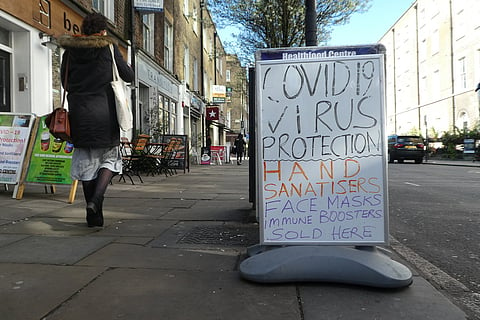New Pandemic Vaccine Could Emerge From Seattle, Here's How You Can Help
by Sally James
South Seattle is among places in the United States where researchers are hoping to recruit volunteers for one study of a potential vaccine against COVID-19.
South Seattle zip codes include a more diverse population than in some other sectors of the greater-Seattle area. The pandemic has hit Black and Latinx populations harder than white populations across the country. According to figures from the Centers for Disease Control and Prevention, the Black population is about 13% of the United States, but Black people make up 25% of deaths from COVID-19.
Lead researcher Lisa Jackson, MD, MPH talked to the Emerald about outreach efforts in an interview about the vaccine she is studying, sometimes called the Moderna vaccine (named for the company that co-developed it with the National Institutes of Health). She works for the Kaiser Permanente Washington Health Research Institute (KPWHRI).
The researchers hope to recruit people from African American, Latinx, and Indigenous populations, as well as other ethnicities. Historically, medical research studies have often been overwhelmingly white.
"We are never excluding anyone," Jackson said. But researchers cannot control a volunteer's decision to participate. Jackson said their study would need about 500 more local participants in its next phase. The first phase was just to prove the safety of the compound in humans and included only 45 people from different parts of the U.S.
"We hope with just increased awareness and publicity we will cast a wider net," Jackson said.
As part of the outreach, postal letters were mailed to Kaiser members in South Seattle, as well as other zip codes in Washington with a higher diversity of residents.
In a press release from two weeks ago, KPWHRI provided more information about this particular vaccine, which is only one of about 25 being tested on people around the world. Kaiser is partnering with a private company, Moderna, to test the vaccine. Seattle folks may be recruited to test other vaccines, but those tests are not currently being organized by Kaiser. Volunteers do not need to have a Kaiser health plan to participate, and there are no costs to volunteers.
Last week, the Moderna vaccine was featured in many headlines for showing some positive results. The vaccine produced changes in the immune systems of recipients in ways that indicated it might protect them from the virus that causes COVID-19. But Jackson warned that those early results do not prove the vaccine would protect people. The next phase of this giant collaboration with other researchers will enroll 30,000 people across the nation. Half of those will get the vaccine and half will get what is called a placebo — something with no active ingredients.
It is crucial that people in the study are exposed to the virus in their communities during the study period. The recruiters are hoping to sign up people who work or live in places where they're more likely to be exposed to the virus. For that reason, Jackson said her study had contacted SEIU 775, a Seattle union that represents caregivers. SEIU 775 represents more than 45,000 long-term care workers — including those working in nursing homes — in both Washington and Montana.
After the vaccine is given to half the participants in the study, the only way to test whether it works is to measure how many of the vaccinated participants get the disease. If all participants escape exposure to the virus, the study will not be able to conclude anything about whether or not the vaccine worked.
"This [pandemic] is the worst thing I've ever seen in my career," Jackson said. But she also believes the cooperation and speed of the scientific response is extraordinary.
Besides the Kaiser research effort with the Moderna vaccine, Seattle happens to be the administrative hub for a coordination of many vaccine efforts nationally. That work is being done through what is called the Coronavirus Prevention Network. This coordination effort was just created earlier this month, and offices are at the Fred Hutchinson Cancer Research Center in South Lake Union.
To learn more about the Moderna study or to volunteer to be a participant, visit the Coronavirus Prevention Network.
Sally James is a health and science writer at www.seattlesciencewriter.com. Her work has appeared in The Seattle Times, Crosscut, PLOS, and elsewhere.
Featured image by Duncan C.
Help keep BIPOC-led, community-powered journalism free — become a Rainmaker today.


